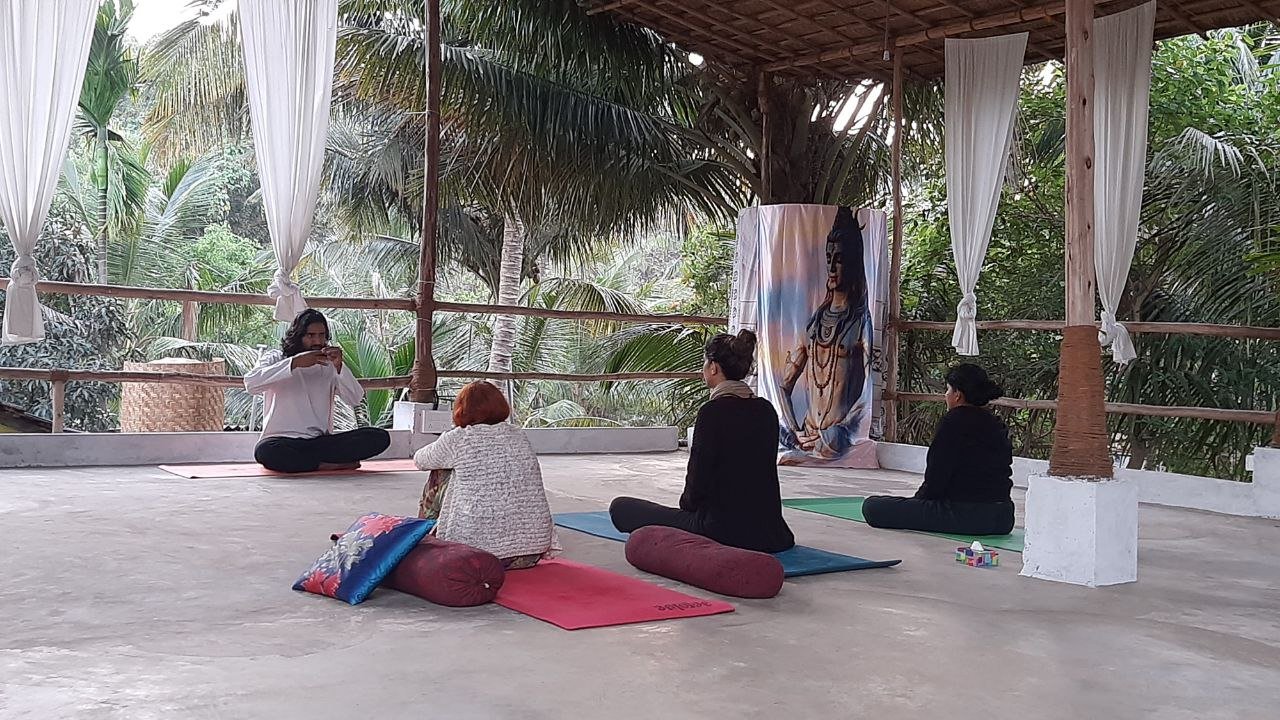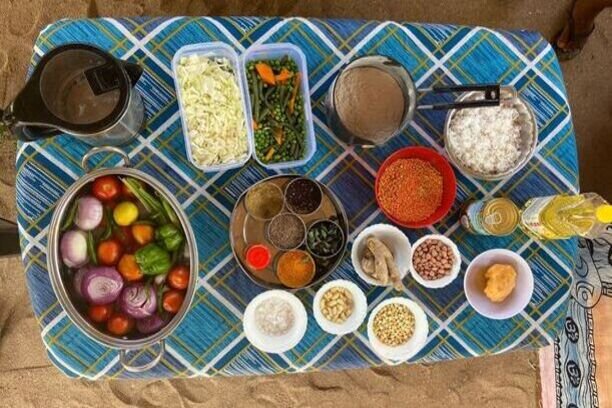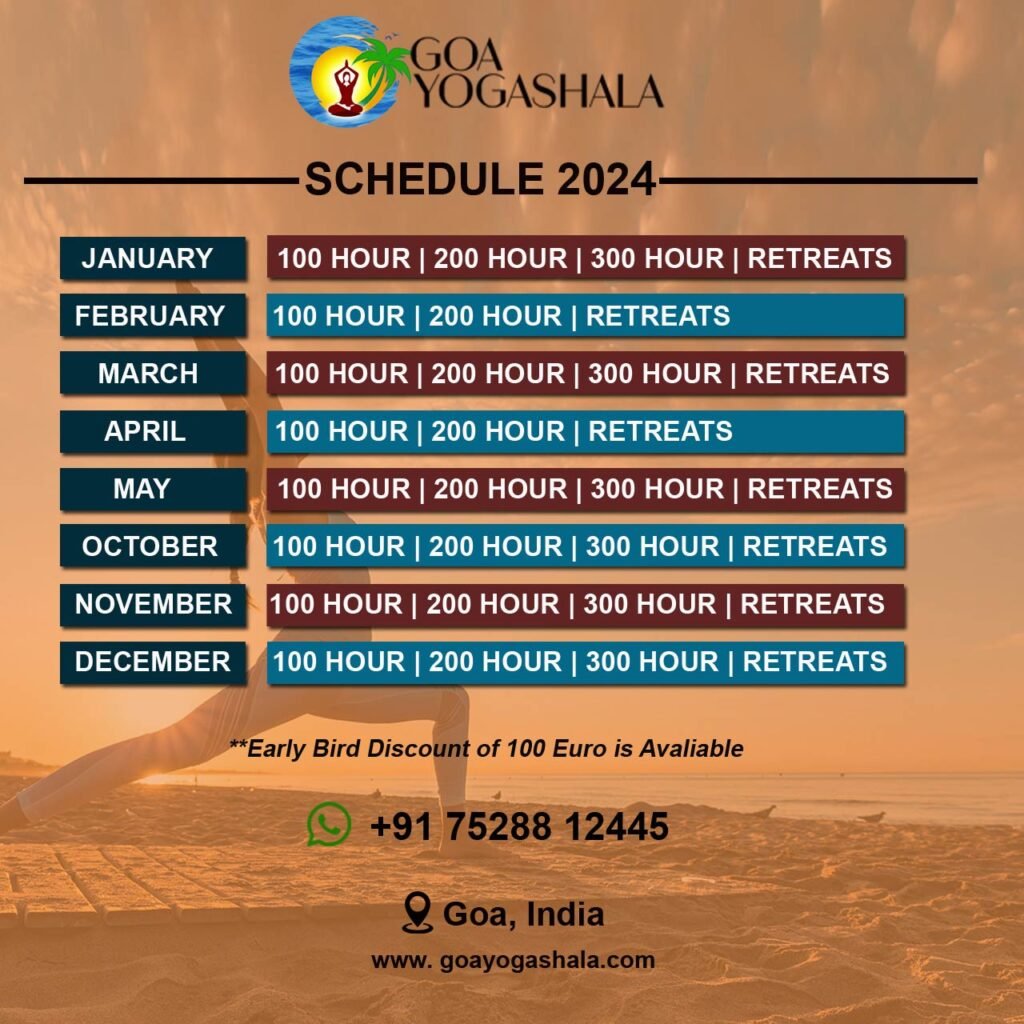We all know that one can stay flexible and strong by practising yoga. Yoga is magical and it is peaceful.
But how would you get the most out of yoga? Certainly not just by practising yoga asanas and meditation!
There is one thing without which yoga is deemed incomplete – Nutrition.
Yes, it is the right food that you also need to focus on to ensure optimal performance and recovery. Yoga is known to offer numerous physical and mental benefits like improving blood pressure, circulation, digestion, and sleep patterns, and reducing anxiety, depression, and other health issues. But you cannot achieve all this if the food intake is not up to expectations or if the food is not giving the energy your mental and physical states require. That’s why it is right to say that yoga and nutrition go hand in hand.
If you eat the right meals before and after yoga, you can certainly improve how you perform and make recovery smoother. Let’s talk more about yoga diet tips in the following blog. Let’s understand what to eat before and after yoga and how Ayurvedic nutrition can help you feel even better.
Importance of Nutrition in Yoga
If you have ever been to a yoga centre or a gurukul, then you must know that yoga gurus often focus on helping students take the right meal. Eating well is important in yoga as it helps your body work better by giving the energy, improving flexibility, and supporting muscle recovery. Here are some of the reasons why nutrition is important in yoga:
Energy: To perform yoga, your body needs fuel, and carbohydrates, proteins, and healthy fats are the fuels that would give you the energy to perform asanas and pranayama.
Muscle Recovery: While practising yoga, you can stretch your muscles. But if your food is rich in protein and vitamins, then you can easily help your muscles repair and reduce soreness.
Better Flexibility and Focus: Fruits and vegetables are prominent parts of a yoga diet. It is because these foods are rich in vitamins and help improve flexibility and mental focus.
So, do follow these good yoga diet tips to give your body the right nutrients.
Pre-Yoga Meals for Energy
Before you roll down your yoga mat and start the practice for the day, it is important to eat the right food that not only gives you energy but also does not make you feel heavy. That’s why a light meal is often recommended before yoga. Here’s what you can take for pre-yoga meals:
- Fruits: Fresh fruits like bananas, apples, or berries are great choices before yoga as they are light and can give you a quick energy boost.
- Smoothies: A smoothie made with fruits, spinach, and a bit of yoghurt is another excellent option, as it would hydrate you and provide easy energy.
- Oats: You can also go with a small bowl of oats with some nuts and honey to keep yourself energised throughout your yoga session.
- Toast with Peanut Butter: Another great option is whole-grain toast topped with almond or peanut butter. It would give you a good balance of carbohydrates and protein.
Timings for the meal: Always take meals at least 1 to 2 hours before yoga as it would give your body enough time to digest the food.
Post-Yoga Foods for Recovery
Once you are done with your yoga session and are now tired due to extreme workouts and heavy asanas, it’s time to help your body recover and regain strength. Here’s what you can eat after your session to speed up recovery and keep your muscles good:
- Protein-Rich Foods: As protein helps your muscles repair and grow stronger, make sure to go with options like eggs, tofu, cottage cheese, or a protein smoothie.
- Complex Carbohydrates: Carbohydrates can also help restore your energy after yoga. So, try eating sweet potatoes, brown rice, or whole-grain pasta to refuel your body.
- Healthy Fats: Healthy fats found in avocados, olive oil, or nuts, can reduce inflammation and support joint health, which is quite important after yoga.
- Leafy Greens and Vegetables: A great source of vitamins and minerals, vegetables like spinach, kale, and broccoli can help your body recover faster.
Timings for the meal: Eat within 60 minutes after yoga as this is the time when your body can easily absorb nutrients and start recovering.
Hydration and Ayurveda Tips
When you practice yoga, it is natural to sweat and lose water. So, how are you going to replace it? Of course, by staying hydrated.
Hydration Tips for Yogis
Drink water before, during, and after your yoga session. It is quite a simple yet important way to stay hydrated.
If possible, consider coconut water as your post-yoga drink. It would help replace the electrolytes lost through sweat and would keep you feeling refreshed.
You must take herbal teas like ginger or mint tea for digestion and relaxation. Drinking these teas after yoga would help your body feel calm and balanced.
Ayurvedic Nutrition for Yogis
Ayurveda, as we all know, is an ancient Indian practice and offers some great nutrition tips for yogis.
- In Ayurveda, people have different body types called doshas. As each dosha benefits from different kinds of foods, every yoga practitioner should eat according to their doshas. For example, Vata types should go with warm and nourishing foods like soups, while Pitta types may prefer cooling foods like cucumber and coconut water.
- As per the Ayurvedic beliefs, a Sattvic diet is considered ideal for yogis as it helps in mental clarity and physical vitality. It includes fresh fruits, vegetables, whole grains, and nuts.
- Add spices like turmeric, ginger, and cumin to your meals as they are often used in Ayurveda to improve digestion.
Conclusion: Nourish Your Yoga Practice
This is how you can take care of your body. Just focus on these simple yoga diet tips and focus on the right pre and post-yoga means and you can easily avail the energy you need to perform advanced yoga asanas, meditation, and pranayama. The right balance of food is always required to get the energy you need to help your body recover. Partake in yoga workshops and events at Goa Yogashala to learn more about yoga and nutrition. If you wish to deepen your understanding of yoga and how food is an essential part of a yogic lifestyle, then enrol in the 200-hour or 300-hour yoga teacher training programs at Goa Yogashala.

















